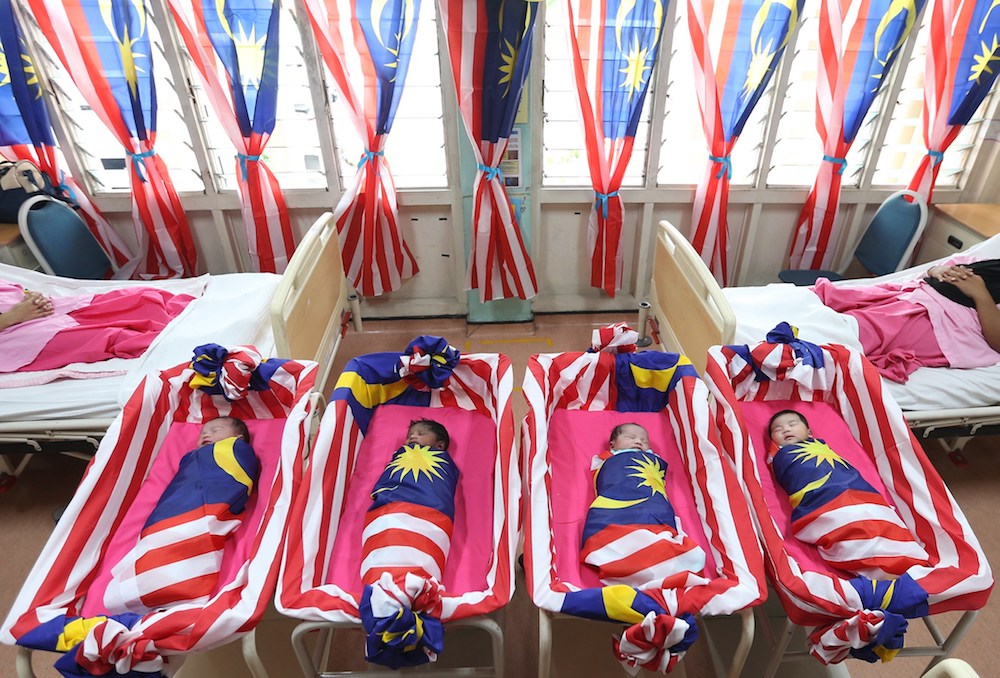KUALA LUMPUR, Oct 26 — Malaysia has approved 0.89 per cent of all citizenship applications Malaysian mothers made for their children from 2018 until this October, the Home Ministry confirmed today.
Bukit Gelugor MP Ramkarpal Singh had asked the home minister to state how many such applications the National Registration Department received as of October 2021, along with how many were either approved or rejected.
In a written parliamentary reply today, the Home Ministry wrote: “Based on the National Registration Department’s (NRD) records from 2018 until October 11, 2021, a total of 2,352 applications were made by mothers who are Malaysian citizens and 21 applications were granted citizenship and 31 applications were rejected.”
In the brief one-line reply, the ministry did not state the status of the remaining applications.
Both the MP’s question and the ministry’s reply did not specify the constitutional provision under which the Malaysian mothers had applied for their children to be recognised as Malaysian citizens.
Previously, the Home Ministry had in a March 20, 2019 written parliamentary reply said the NRD had received 4,112 citizenship applications under Article 15(2) of the Federal Constitution from 2013 to February 15, 2018, and had in Hansard records on October 9, 2019 said it had approved 142 citizenship applications under Article 15(2) for the entire 2013 to 2018 period.
Under Article 15(2), the Malaysian government “may” register anyone aged below 21 as a Malaysian citizen, if this person has at least one parent who is Malaysian and if this person’s parent or guardian had applied for the citizenship registration.
Article 15(2) citizenship applications are typically used by Malaysian mothers who want their children born abroad to foreigner husbands to be recognised as Malaysians, but the long years of waiting have often caused hardship and difficulties to their families.
This is in contrast to Malaysian fathers who can automatically pass on their citizenship to their children born abroad to foreigner wives, under the country’s current citizenship laws.
Home Ministry says no guarantee of success for citizenship applications
Separately, Teluk Intan MP Nga Kor Ming asked the Home Ministry to state the number of stateless children in each state in Malaysia and the steps taken by the government to address the chronic problem.
In a written parliamentary reply, the ministry however said that the NRD only records an individual’s status to be either a citizen or non-citizen based on the parents’ marriage status and citizenship status at the time of birth, and appeared to suggest that no records are kept of stateless individuals.
“Therefore, no individuals are recorded as stateless in Malaysia,” it said.
The Home Ministry went on to say that being born in Malaysia does not result in an individual automatically acquiring Malaysian citizenship.
The ministry said an individual’s citizenship status is determined based on the biological parents’ marriage status and citizenship status when the child is born, in line with Part III of the Federal Constitution, Citizenship Rules 1964 [L.N.82/1964] and laws related to marriage registration, adoption, legitimacy of the child and immigration rules.
For children born before the parents register their marriage according to Malaysia’s laws, the Home Ministry said these children would follow the mother’s nationality, citing Section 17 of Part III of the Second Schedule of the Federal Constitution which relates to illegitimate children.
The Home Ministry said that steps should then be taken to ensure such children — born before their parents had their marriage registered — are not “mistaken” to be stateless.
“In this matter, parents and guardians to those children are fully responsible to handle the citizenship, personal identification document and travel documents with the original country to ensure these children can still use the privilege of the mother’s original country such as being able to apply for travel documents from the mother’s original country to avoid those children from having no personal identification document, invalidly being in Malaysia and wrongly considered (disalah anggap) as not having citizenship from any country (stateless),” the ministry said.
In the same reply, the Home Ministry said foreigners or individuals who are non-citizens that wish to apply for Malaysian citizenship can do so either through seeking for registration or naturalisation to be a citizen, if they have fulfilled the conditions in the Federal Constitution and related laws such as on marriage registration and birth registration.
The ministry however reminded that fulfilling such conditions would only qualify an individual to be able to submit applications for citizenship, but said it is no guarantee that such citizenship applications would be approved.
While the ministry did not elaborate on these children who were born before their parents registered their marriage, multiple individuals have over the years resorted to going to the courts to seek to be recognised as Malaysian citizens — including those who are born in Malaysia to a Malaysian father and a non-Malaysian mother and who say that they are stateless and have not acquired citizenship from any other country.
Among others, those born in Malaysia but who do not know who their biological parents are and would then be unable to know their biological mother’s nationality — and who have been adopted by Malaysians — have also gone to court in order to seek to be recognised as Malaysian citizens.



















